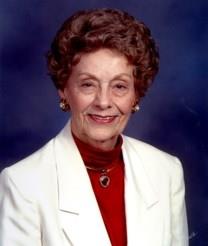“Blasphemy” is irreverence for God and for the things he has declared holy. The scene from Daniel 5 is a perfect picture of blasphemy. Belshazzar, the son of Nebuchadnezzar and king of great Babylon, is having a party. In an effort to exalt himself over all things, he has the implements taken from the Hebrew temple brought so he and his guests could drink libations to pagan gods from these vessels. A sobering moment came when the king saw “the handwriting on the wall.”
You know the story. Daniel, the aging prophet, was brought to read and interpret the mysterious words, “Mene, Mene, Tekel, Parsin.” Before doing so he rebuked the king for his pride and dishonor before God. The message was that Babylon would fall to an army that, unbeknownst to the revelers, was already invading the city. Ancient historians record that the Persian army sneaked into the city while a great feast was underway. That night, Belshazzar died and Babylon fell. His specific blasphemy of that night only followed a life of obstinate pride and impiety on the part of the empire and its king. But when Babylon fell, the empire’s leaders were caught doing the things that typified their condemnable course.
No lesson in Scripture has seemed more pertinent to me over the past few weeks than does this final event in the history of Babylon. Just a year ago the U.S. Supreme Court ruled in Obergfell v. Hodges—essentially overturning the voters’ verdicts in several states that marriage has a fixed and coherent meaning. This year’s big finale also overturned the ability of voters to speak on a crucial and foundational issue, this time the value of mothers and babies. Many have spoken eloquently on this particular case, Whole Woman’s Health v. Hellerstedt; none speak for my heart so well as Justice Clarence Thomas in his dissent, (supremecourt.gov/opinions/15pdf/15-274_p8k0.pdf).
The celebratory response to both decisions was startling and overt in its blasphemy. The most familiar example is a tweet from The Daily Show that praised this victory for industrialized and unregulated abortion by crudely encouraging men to impregnate women in Texas. Some of the other responses of private individuals were worse and more crude. One columnist spoke of being happy that the late Justice Antonin Scalia is dead, especially after the Whole Woman’s Health ruling. Clearly, we have gone beyond the “Safe, Legal and Rare” myth. The celebratory responses to Obergfell were just as mean and irreverent, if less bloodthirsty.
I guess I’m saying that if America falls tonight, this is what our nation will be caught doing, showing future generations the reason for our fall. Those who fear God use the word “sanctity” to describe marriage and life indicating our belief—certainty, really—that these things are God’s particular prerogatives. We disrespect his person when we scorn them.
I offer two thoughts about the whole matter of blasphemy and cultural wreckage. First, Daniel was not undone or aflutter about all this. He’d seen kings and their outrageous behaviors come and go; still, the unchanging Sovereign abides. You can see his confidence when the old man rebukes the king of Babylon as if he is a disobedient child. He refuses to sell his credibility for trinkets, he scorns the threats of kings, and he stands as empires rise and fall. That’s God at work, not Daniel. He’s still at work and will be as nations, even ours, wax and wane.
The second thing is an “in the meantime” encouragement. We’re still here, and we still have rights as full citizens of a free country. It’s not time to build a monastery or stockpile ammunition against that day. We should have the truth of God in our mouths and a voter registration card in our pockets. We should show up for Election Day for however many years or generations we are allowed to do so. In this way, when Belshazzar asks us to speak for our God, we should do so. We are frequently reminded after a Supreme Court legislative action that elections have consequences. Presidents elected without substantial turnout from our churches appoint the justices. Senators elected without substantial turnout from our churches approve those justices. And so it goes all the way down to the lesbian sheriff of my county to the Fort Worth ISD school board in neighboring Tarrant County. We act surprised when something terrible happens.
Like Daniel, let us take seriously the things of God—we must be known for that, to a greater degree than now. We’re not undone when others do otherwise, bringing catastrophe on the nation; but neither should we be tempted to join the party, handling irreverently the things of God.


 DALLAS—
DALLAS—








